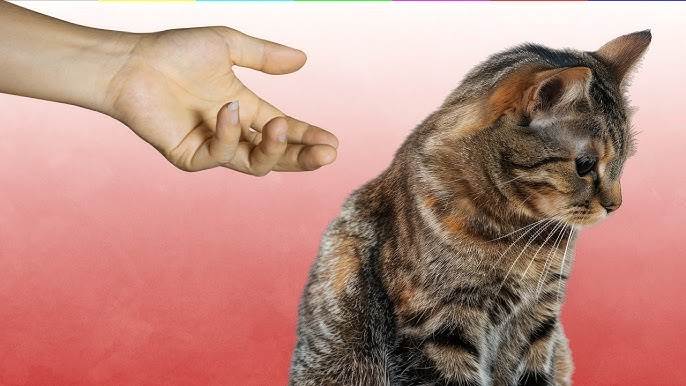

16 Common Mistakes Hurting Your Cat's Happiness: How to Avoid Them!
Cats are often seen as independent and self-sufficient, but they still need plenty of care, attention, and affection to thrive. Unfortunately, many cat owners unknowingly make mistakes that can harm their feline friends' happiness and well-being. Whether you are a first-time cat owner or an experienced one, here are 16 common mistakes that can hurt your cat’s happiness and how to avoid them:

1. Ignoring Their Need for Play Cats, especially young ones, need regular mental and physical stimulation.
Not providing enough playtime can lead to boredom, anxiety, and behavioral issues. Make sure to engage your cat with interactive toys, such as feather wands or laser pointers, to give them the exercise and mental challenge they need.
2. Overfeeding or Underfeeding Feeding your cat too much or too little can lead to obesity, malnutrition, or health problems. Ensure that you are feeding them the right amount of food based on their age, weight, and activity level. Regularly check with your vet for guidance on portion control and proper nutrition.
3. Not Cleaning the Litter Box Regularly Cats are very particular about their bathroom habits.
A dirty litter box can cause stress and even lead to inappropriate urination or defecation. Make sure to clean the litter box at least once a day and replace the litter regularly.
4. Overwhelming Them with Too Much Attention While cats do enjoy affection, excessive cuddling or petting can make them feel trapped or overwhelmed. Always pay attention to your cat’s body language and respect their boundaries. If they pull away or start grooming themselves, it’s a sign that they need some space.
5. Leaving Them Alone for Too Long Although cats are independent, they still need social interaction. Leaving them alone for long periods without any human interaction can lead to loneliness, depression, and behavioral problems.
If you’re gone for long hours, consider arranging for a pet sitter, or leave some entertainment like interactive toys or videos.
6. Ignoring Their Need for Scratching Cats need to scratch to mark their territory, stretch their muscles, and maintain their claws. Not providing a scratching post or other scratching surfaces can lead to furniture destruction and stress. Make sure to have designated scratching posts or pads available.
7. Punishing Them Punishing a cat, whether by yelling, hitting, or other negative behavior, can be extremely harmful. Cats do not understand punishment the same way humans do, and it can lead to fear, anxiety, and mistrust.
Instead, focus on positive reinforcement and redirecting bad behaviors with rewards for good actions.
8. Not Providing Enough Fresh Water Cats are prone to urinary tract problems and dehydration, especially if they eat dry food. Ensure that your cat has access to fresh water at all times, and consider investing in a cat water fountain, which encourages them to drink more by providing running water.
9. Not Regularly Grooming Them Cats, especially long-haired breeds, require regular grooming to prevent matting, hairballs, and skin irritation. Brushing your cat regularly helps to keep them comfortable and reduces the risk of hairballs.
Even short-haired cats benefit from occasional grooming.
10. Keeping Dangerous Household Items in Reach Cats are naturally curious and may investigate anything within their reach. Ensure that toxic substances like cleaning products, plants, and small choking hazards are kept out of their reach. Cats may chew on cords or knock things over, so it’s important to keep harmful items safely stored.
11. Forcing Them Into a Carrier or Uncomfortable Situations Some cats may be nervous about car rides or trips to the vet. Forcing them into a carrier or holding them in uncomfortable situations can cause fear and anxiety.
Allow your cat to get accustomed to the carrier slowly, and use positive reinforcement to associate it with something pleasant.
12. Not Providing Enough Mental Stimulation Cats need mental stimulation to stay sharp and happy. Puzzle feeders, hiding treats, and rotating their toys regularly can help keep their minds active. If you have an indoor cat, consider providing them with window views to watch birds or outdoor activity.
13. Not Respecting Their Space Cats need their own space to feel safe and secure. Avoid overwhelming your cat by giving them a quiet area where they can retreat when needed.
Not respecting their boundaries can lead to stress, anxiety, and behavioral issues.
14. Leaving Them Unstimulated in a Small Space Keeping your cat in a small or cramped area for extended periods can lead to frustration and stress. Cats love to climb, jump, and explore. Make sure they have a variety of spaces to explore, such as cat trees or high shelves, to satisfy their instincts.
15. Neglecting Regular Vet Check-ups Regular vet check-ups are essential to monitor your cat’s health and prevent serious conditions. Neglecting to take your cat for routine vet visits or vaccinations can put their health at risk.
Ensure that your cat has regular check-ups, especially as they age.
16. Not Giving Them Enough Affection While cats may not always seek attention the way dogs do, they still need affection and bonding with their owners. Spend quality time with your cat by petting them, sitting with them, or simply being in the same room. Your presence and attention show them that they are loved.
Conclusion Cats may not always show it, but they rely on us to meet their physical, emotional, and mental needs. By avoiding these common mistakes, you can ensure your cat is happy, healthy, and feels loved. Take time to understand your cat’s behavior, respect their boundaries, and provide a comfortable environment that supports their well-being.
In return, your cat will reward you with affection and loyalty.
